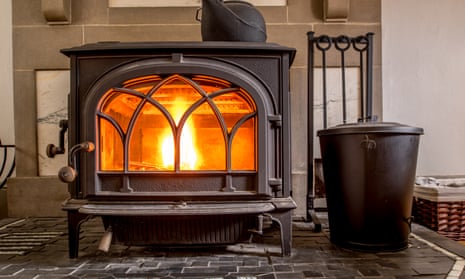As wood-burning stoves have become a talking point in England after warnings about the pollution they emit, those who installed them and feel guilt may worry about how to replace their beloved burner.
However, there are good options that are just as cosy-looking and warm but emit fewer particulates and are less likely to land you with a £300 fine.
Electric ‘fire’
This could be a good option, and as the country moves to renewable energy it’s a potentially a savvy one too. These have minimal installation time and do not need a chimney. You can get electric fires with flame displays that give that wood-burning look without the added pollution. The heat can also be turned off in warmer weather but with the flame displayed, so it looks charming but does not overheat your home. If you already have a wood-burning stove, you can get an electric insert for £300 to £1,200, plus the cost of the installation.
Gas fires
Though expensive to run at current prices, they give off more heat than a wood-burner. It is not the most climate-friendly option, as it is using fossil fuels to heat your home. Converting your wood-burner to a gas fire typically costs between £600 and £1,800, plus professional installation.
Bioethanol burners
These are increasingly popular, though they can be expensive. Some have attractive Scandi-style designs and are freestanding, meaning you do not need to connect them to a chimney, and they can brighten up a flat. They also do not produce carbon monoxide or particles, and instead release water vapour and carbon dioxide. There are hi-tech options that you can turn on and off with a remote control from the comfort of your sofa.
Get rid of it altogether
If you are no longer wedded to the idea of flickering flames, why not use the space for decorations, a television or storage instead?
